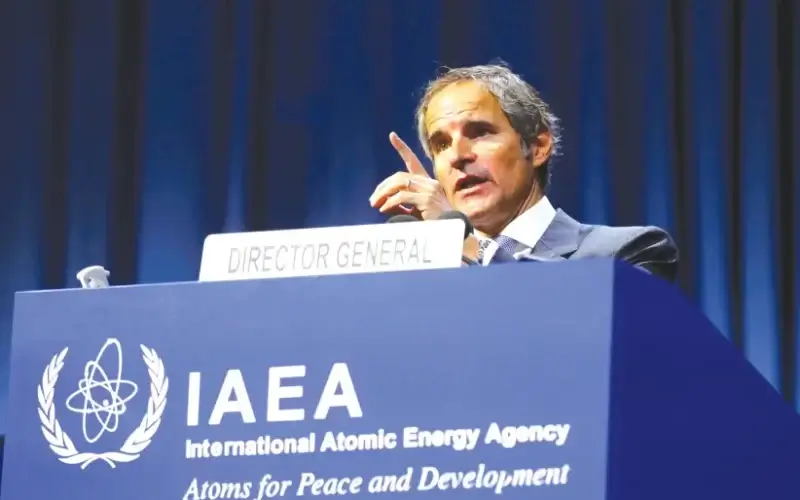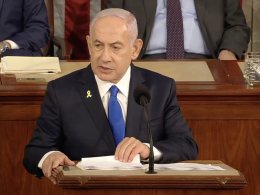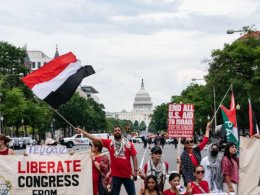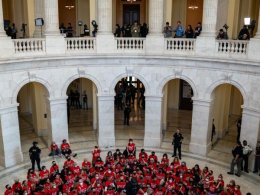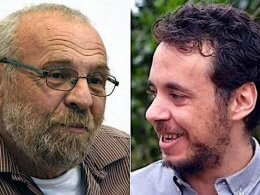IAEA Director-General Rafael Grossi’s self-made deadline for saving the Iran nuclear deal passed on Thursday without the Islamic Republic complying with his demand to reactivate his nuclear inspectors’ surveillance cameras.
On June 9, Grossi held a dramatic press conference in which he warned that if Tehran did not reverse its closing off of 27 cameras and points of access to his inspectors within three to four weeks, it would be a “fatal blow” to the 2015 JCPOA nuclear deal.
He explained that the IAEA would no longer be able to estimate the status of the nuclear program.
Grossi went so far as saying that even if the US and world powers reached a new deal with Iran sometime beyond four weeks from June 9, his agency would be unable to competently advise them how much Tehran would need to reduce its nuclear program to prevent it from crossing the nuclear threshold.
Questioned on Thursday about whether Grossi stood by his deadline and the JCPOA is now unsalvageable or whether he had a new position, the IAEA did not respond.
US officials at the time demurred from Grossi’s deadline, saying there were still ways to follow Iran’s nuclear developments, without specifying how.
At the time, Grossi said that the Islamic Republic had retaliated against an IAEA Board of Governor’s vote to censure it for its violations, by shutting off 27 surveillance cameras at several key nuclear facilities.
At the same time, the IAEA chief said that around 40 cameras would continue to operate.
Overall though, his sense was that within three to four weeks, the IAEA would lose its “point of continuity” at which it could estimate Iran’s nuclear status even based on a partial picture of data.
Part of the challenge is that IAEA access to its own cameras has been on again and off again since February 2021.US Secretary of State Antony Blinken issued a statement the same day at Grossi’s press conference saying that Iran must cooperate with the IAEA “and provide technically credible information in response to the IAEA's questions, which is the only way to remove these safeguards issues from the Board's agenda.”
“The only outcome of such a path will be a deepening nuclear crisis and further economic and political isolation for Iran,” said Blinken. He noted, however, that the United States remains committed “to a mutual return to full implementation of the JCPOA.”
On Wednesday night, the US rolled out new sanctions against Iran and against third party countries violating those sanctions in an ongoing effort to get the ayatollahs to return to the JCPOA’s nuclear limits.
The US Department of the Treasury’s Office of Foreign Assets Control (OFAC) sanctioned an international network of individuals and entities that “has used a web of Gulf-based front companies to facilitate the delivery and sale of hundreds of millions of dollars’ worth of Iranian petroleum and petrochemical products from Iranian companies to East Asia.”
“While the United States is committed to achieving an agreement with Iran that seeks a mutual return to compliance with the Joint Comprehensive Plan of Action, we will continue to use all our authorities to enforce sanctions on the sale of Iranian petroleum and petrochemicals,” said US Under Secretary of the Treasury for Terrorism and Financial Intelligence Brian E. Nelson.
The newly sanctioned entities are located in Iran, Vietnam, Singapore, the United Arab Emirates (UAE), and Hong Kong, and Washington accused them of supporting Iran’s energy trade, generating millions of dollars’ worth of illicit revenue.
One specific web of targets individuals included eight entities and two individuals located in Iran, Hong Kong, and the UAE, that support the continued involvement of Naftiran Intertrade Company, Iran Petrochemical Company, Persian Gulf Petrochemical Industry Commercial Company, Triliance, and Behran Oil in the sale of Iranian petroleum and petroleum products abroad.
Last week, the US, Iran and the European powers broke a three-month freeze in negotiations by holding multiple days of talks in Doha, Qatar, but no progress was made.






